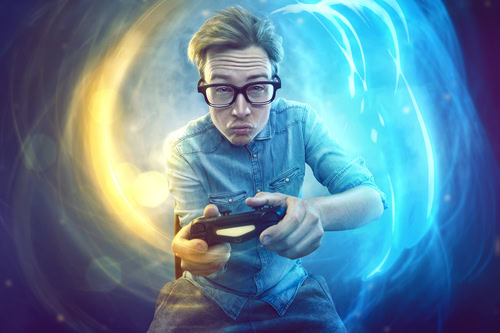Gaming Addiction

Process addictions have only become legitimate in the eyes of the medical community in recent years. Gambling addiction has held a place in the Diagnostic and Statistical Manual of Mental Disorders for many years, which gives it credibility as a diagnosable disorder. In one of the most recent editions of the DSM, the fifth edition, a further look into internet gaming addiction was called for. Other process addictions like sex addiction, technology addiction, or pornography addiction have not yet been legitimized in this way. Though parts of the academic community may not see these mental illnesses as “legitimate” many treatment professionals around the world know them to be problematic. Moreover, the people who are living with them and struggling with them know them to be problematic.
The World Health Organization included gaming addiction, both internet and video gaming, as a mental health condition in the International Classification of Diseases in January of 2018. Gaming Disorder, as the organization named it, was defined as “A pattern of gaming behaviour characterised by impaired control over gaming…” additionally, there is “…increasing priority given to gaming over other activities to the extent that gaming takes precedence over other interests and daily activities…” Included was the hallmark of addiction, the “…continuation or escalation of gaming despite the occurrence of negative consequences.”
When someone’s obsessions grow to be compulsive and affect their behavior in a way which takes priority over their health or relationships, it has become addiction. Addiction is, in addition to many things, a compulsive behavioral issue. Ultimately, the qualification for gaming addiction is that gaming and gaming behaviors get in the way of relationships, employment, and other responsibilities, for at least a year.
Gaming addiction is relatively new because the ability to spend long hours engaged in gaming is only as new as computers are. Largely gaining popularity in the eighties, gaming has become both pop culture and sub-culutre, with “gamers” building both a community and an identity for themselves. As gaming has grown, so has the knowledge that some “gamers” become addicted to the game.
Causes For Gaming Addiction
Like any other addiction, there are multiple causes for its development. Many who become addicted to gambling seem to have shared characteristics of difficulty interacting with others socially. The online world of gaming becomes a safe place to be someone other than the self. Personality or mood disorders can create a predisposition to gaming addiction, which creates a dual diagnosis situation.
Help for gaming addiction is available. If your life is struggling due to gaming addiction, there are options for you. O’Connor Professional Group offers concierge behavioral health services. From consultations and treatment placement to case management and executive coaching, we custom create your plan of treatment to meet your needs. Call us today for information: 617.910.3940

